The pioneer of upvc rooftile manufacturing in Iran!
+9120465839
Sales unit Connection
Have you used glossy glazed clay roof tiles for your house so far? What is the point of using them? What are the advantages and disadvantages of clay roof tiles?
Construction building material is a topic that is developing rapidly. Various types of it are offered to the international construction market. Especially fireproof material construction add security and reassurance to your building.
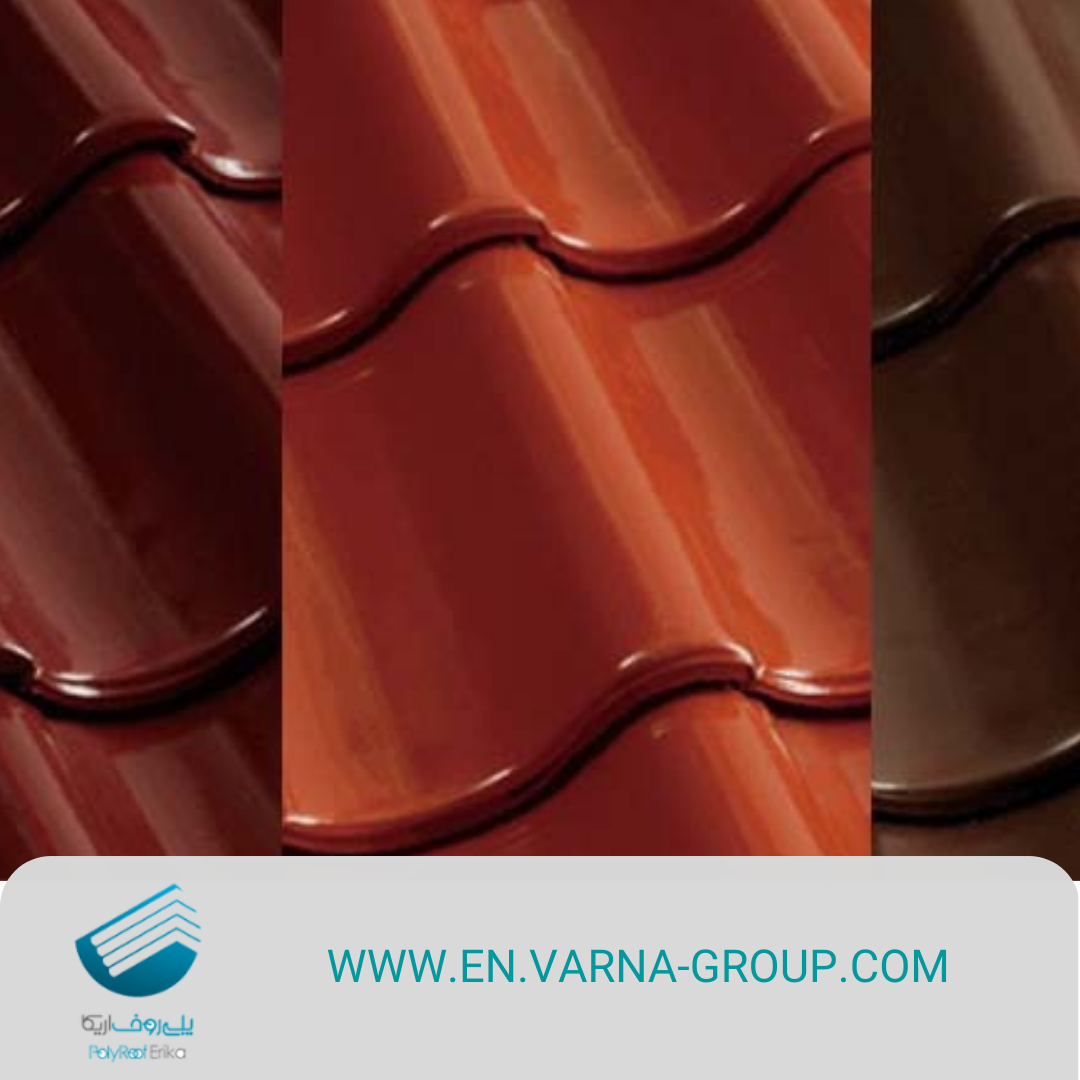
If you’re having a hard time making a decision which roof tiles are best, we are here to make the process much easier for you. Here we want to talk mostly about clay tiles and the comparison between glazed clay roof tiles and uPVC roof tiles. What are the pros and cons of using each of them? What are the advantages of glossy glazed roof tiles for your building? In the meantime we are going to have a look at the clay roof tiles prices too.
How are clay roof tiles made? Although clay roof tiles are old, but they are one of the most trusted roofing systems. They are designed mainly to keep out fire, wind and UV rays.
Clay roof tiles are prepared from baking molded clay at high temperature. They are molded into required texture and size, then comes the coloring and shading. Terra-cotta is a kind of special colored clay tiles which is very popular. Clay roof tiles are also referred to as Spanish tile roofs.
Natural clay is still processed in large scale and by traditional methods. The roof tiles are created by filling tile moulds or pallets and are baked at a high temperature. Weight and appearance of the clay tiles are determined by how long it is baked and how high the temperature is.
Terracotta tile is a very popular choice in roofing. Due to their natural porous surfaces, and natural clay material – a moist substance; it lasts longer as it is a material that can withstand several years of weather exposure.
For instance, one of the traditional clay tiles used for roofing is ceramic. It consists of white clay and is manufactured under extreme compression methods.
Glazes are made up of ceramic pigments, mixture of clay in a small amount – and a large amount of sand. This leads to a thin, protective layer and smooth coating. Different styles of glazes can be made – matt or gloss. They are an excellent choice for roof tiles as they can be used for ceiling or roof tops.
Clay tiles are durable and you need to be careful while cleaning. For installation, repair or painting clay roof tiles, you should hire a professional roofer. Due to their natural materials, and energy efficiency; glazed clay tiles can be recycled and used as a good option in warm dry climate.
What are the benefits of glazing clay tiles in building and construction? Generally, glazing helps maintain clay roof tiles in a water-resistant and eye catching color. This glassy layer on the surface of clay adds an enhanced level of resilience and endurance.
Clay roof tiles shingles come in a variety of textures – which glossy shiny tiles, in particular – add to the architectural style of building construction and show its unique and true colors. (Besides other advantages).
Clay roof tiles or terracotta roof tiles – which are a type of clay-based ceramic for roof covering – can be glossy and shiny. But what is the benefit of making tiles glazed?
There are many benefits in a glossy clay roof tile. Glazed clay or terracotta roof tiles use coatings with wide range of shades and colors. There are various styles of glossy clay roof tiles – categorized in semi-glossy and highly glossy terracotta or clay tiles. Because of their glazed surface, clay tiles are more durable and absorb less moisture.
Since unglazed clay roof tiles do not have this coating, they preserve their natural clay color. Unglazed clay roof tiles on the other hand; are not covered with this protective and glossy coating; therefore they are better used in climates with low humidity and little rain.
Unglazed clay roof tiles will absorb more water so the chance of tiles deterioration increases. They need extra protection so that they can be used – as a high quality material with an aesthetic look – almost everywhere.
Clay roof tiles vs ceramic roof tiles:
While ceramic and clay roof tiles both are eco-friendly, they have some significant differences, too.
As we mentioned earlier, chances of water absorption in clay roof tiles are higher. But the material used in ceramic tiles are white clay which provide more resistance, and is lighter in weight. It gives more resistant to harsh weather. Ceramic roof tiles are also a better option for low-pitched roofs. Ceramic roof coating provides deeper glaze and a better thermal resistance.
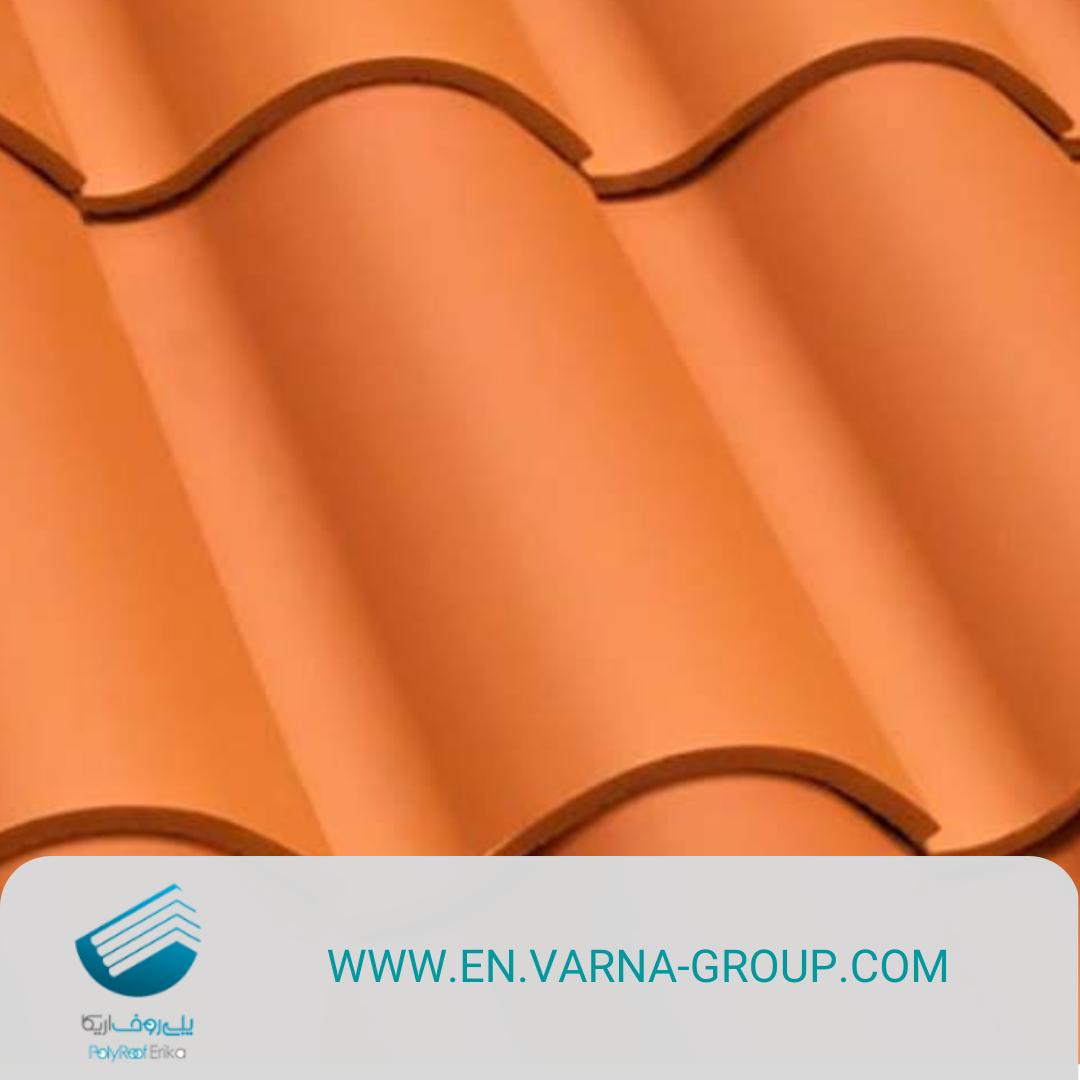
Nowadays, glazed clay roof tiles in UAE have become very popular. Most glazed clay roof tiles in Dubai are available in 3 categories:
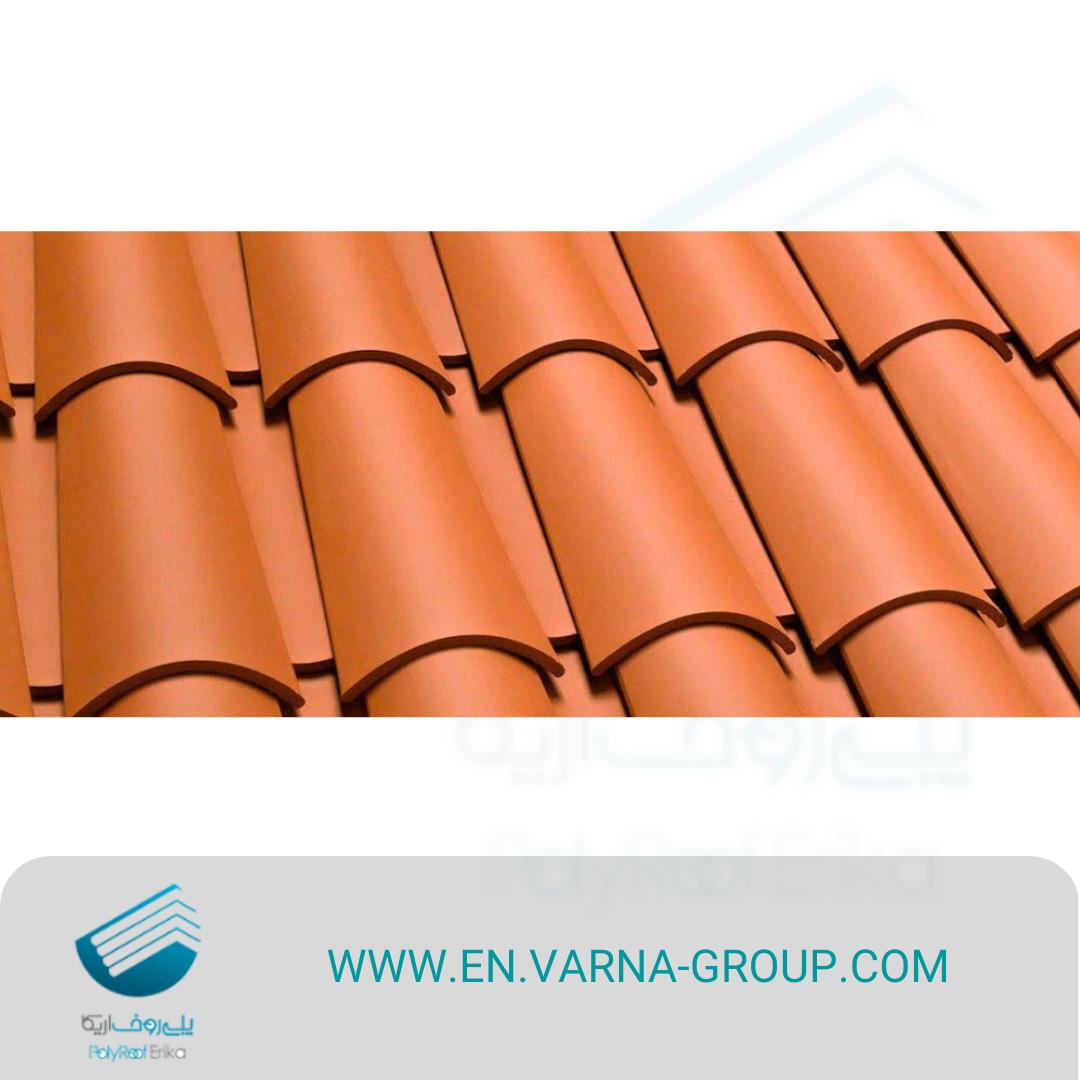
Barrel roof tiles
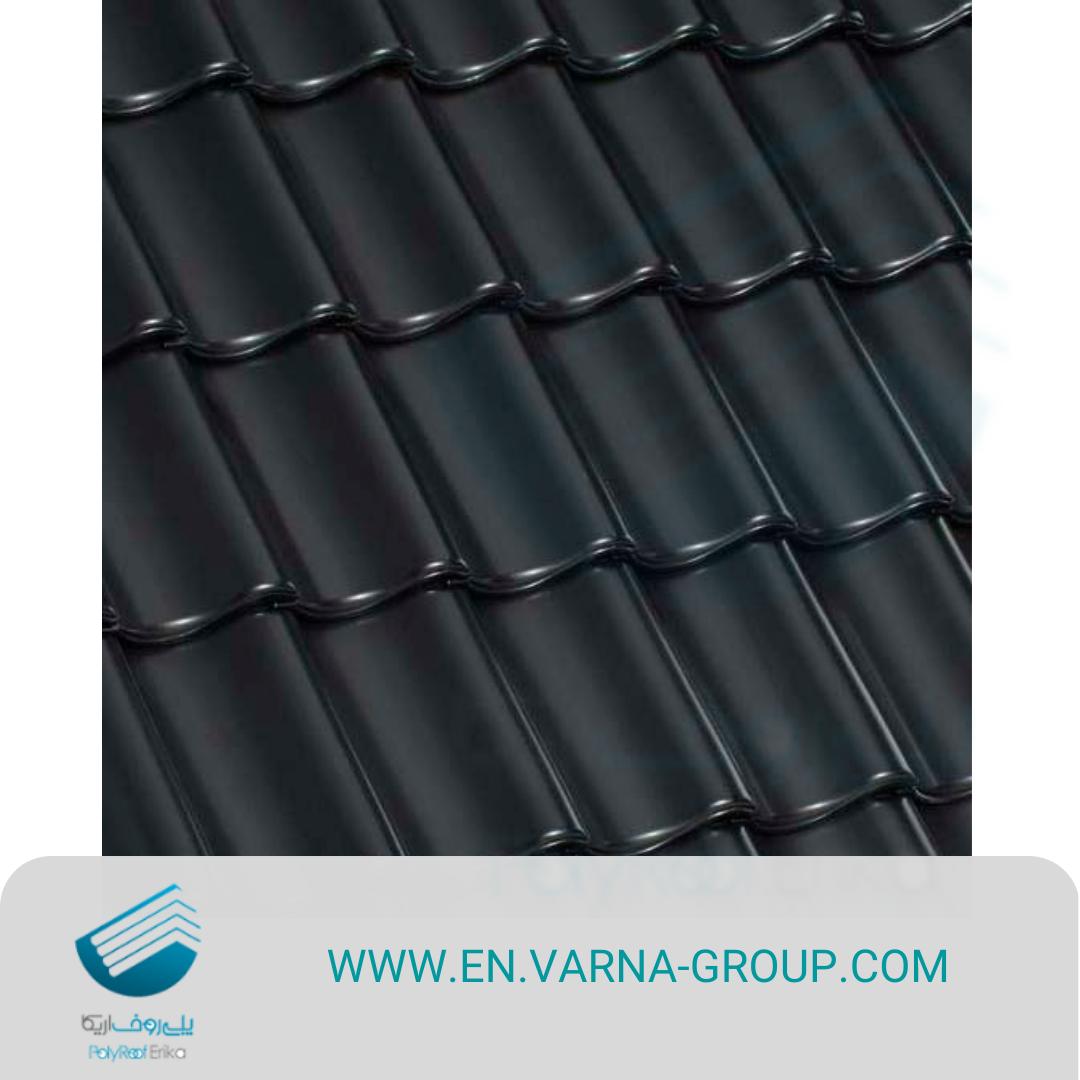
Glazed black roof tiles
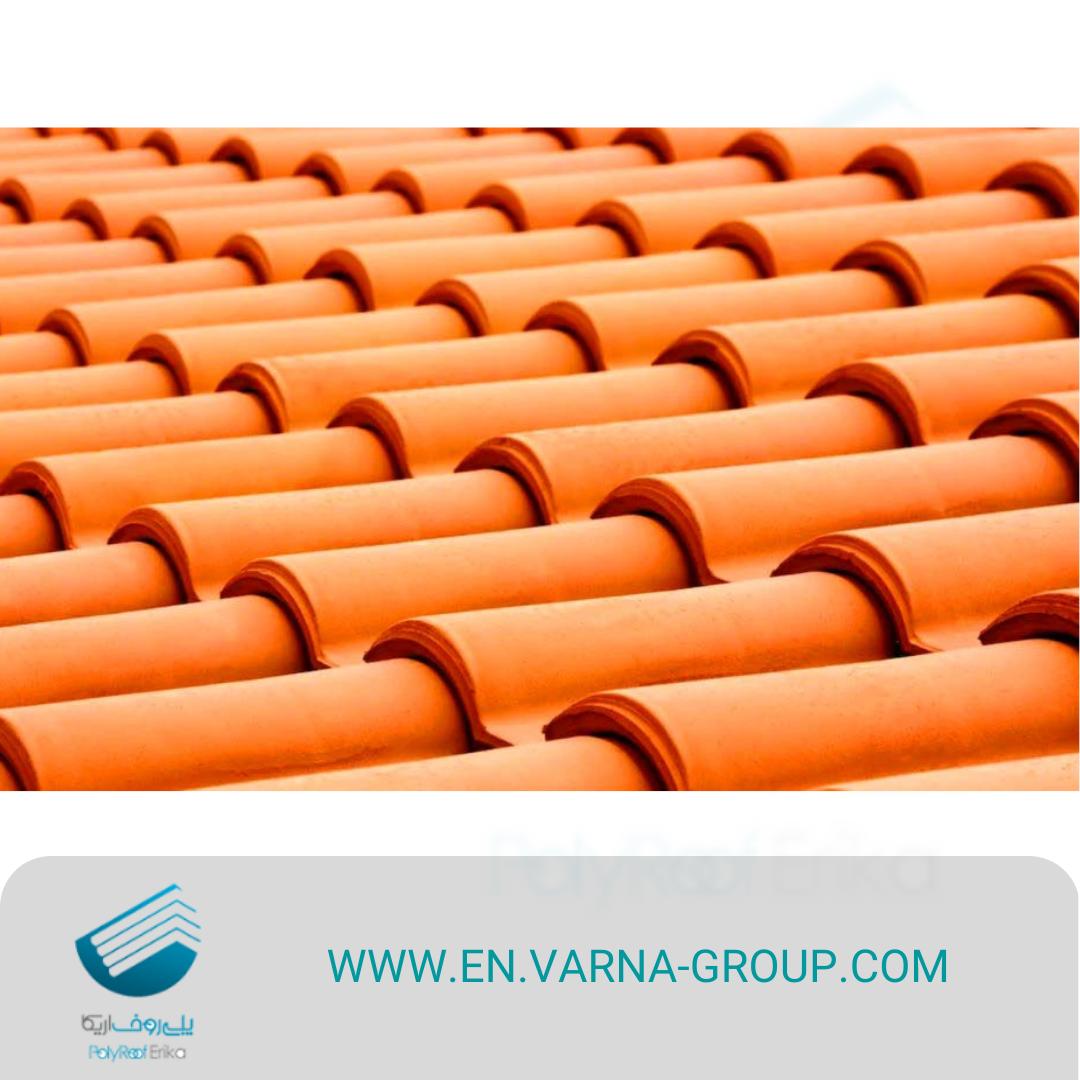
Red clay roof tiles
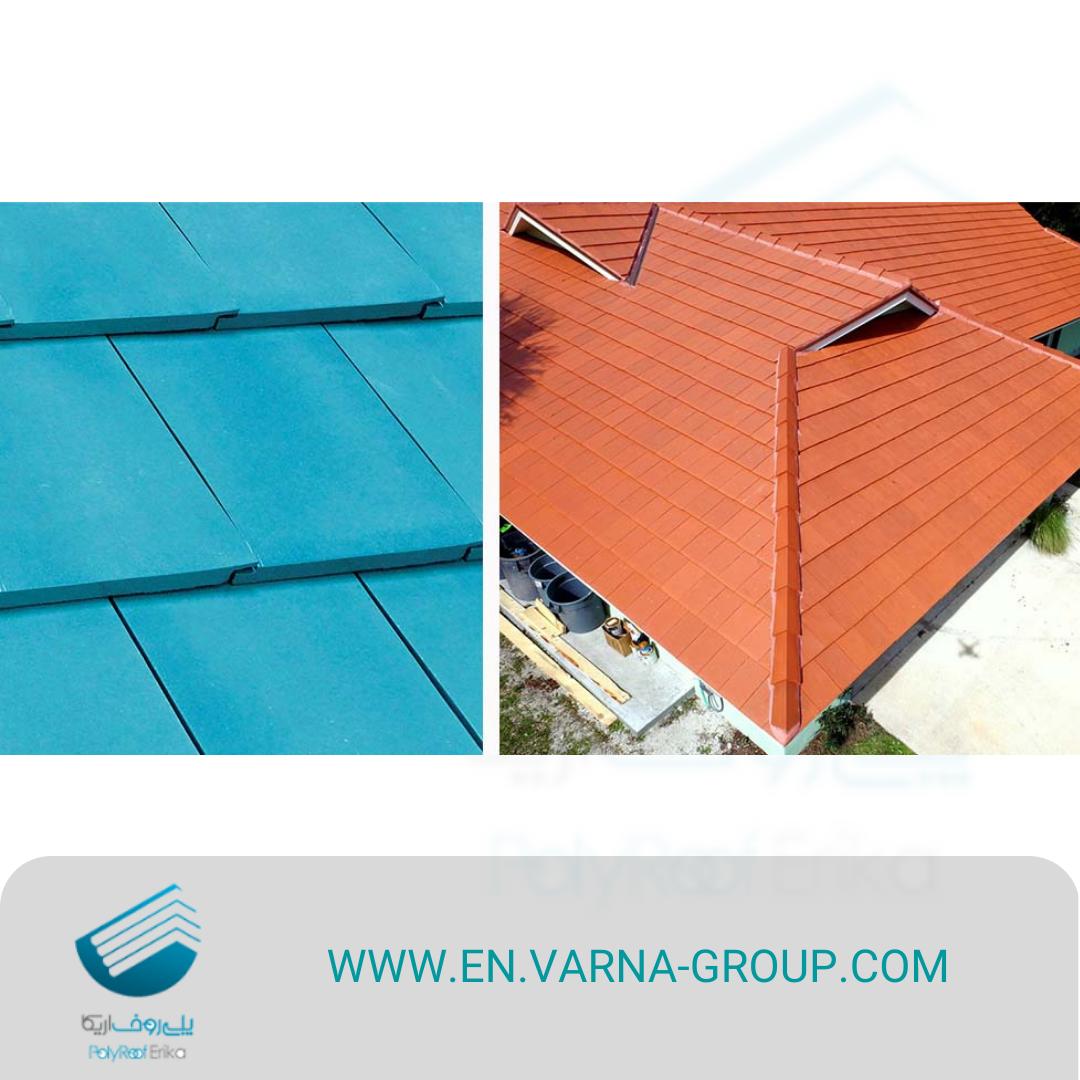
Flat clay roof tiles
Best way for cleaning glazed clay roof tiles is using a pressure washer. This can effectively eliminate moss, algae and other dirty elements. A manual washing with detergent and water can be effective too.
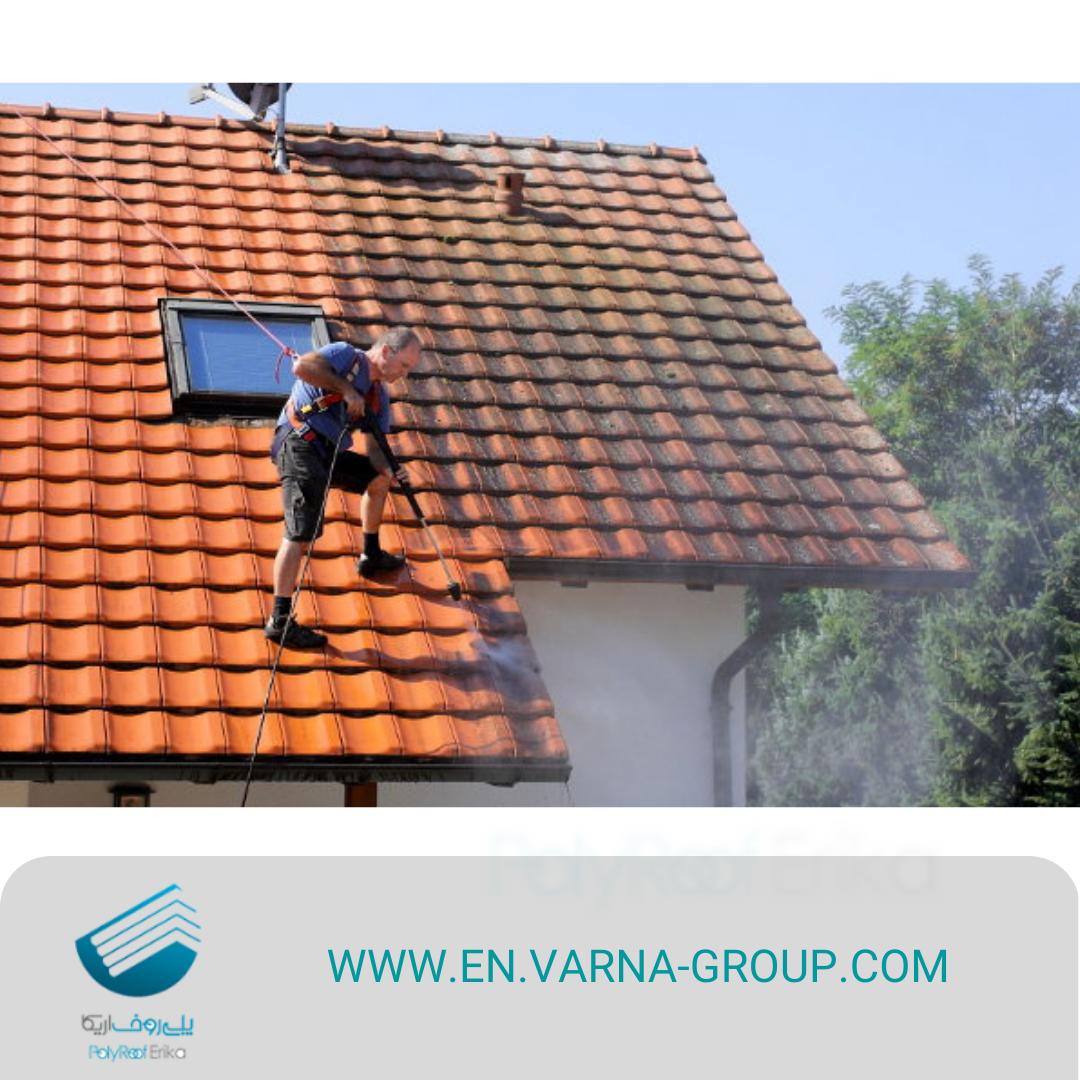
What are clay tile roof pros and cons?
Clay tile roofs have been popular for centuries and are known for their distinct glazed color – Thanks to clay roof texture and variety of styles, its durability and curb appeal.
Please note that just because you like the appearance of glazed roof tiles; does not necessarily mean this material is the best option for building your roof. That is why in this article, we look into clay roof tiles properties – its pros and cons – for you to see if they are worth the extra money or not. Otherwise we provide some information and suggestions for other durable and cost-effective high quality building materials.
Pros:
Cons
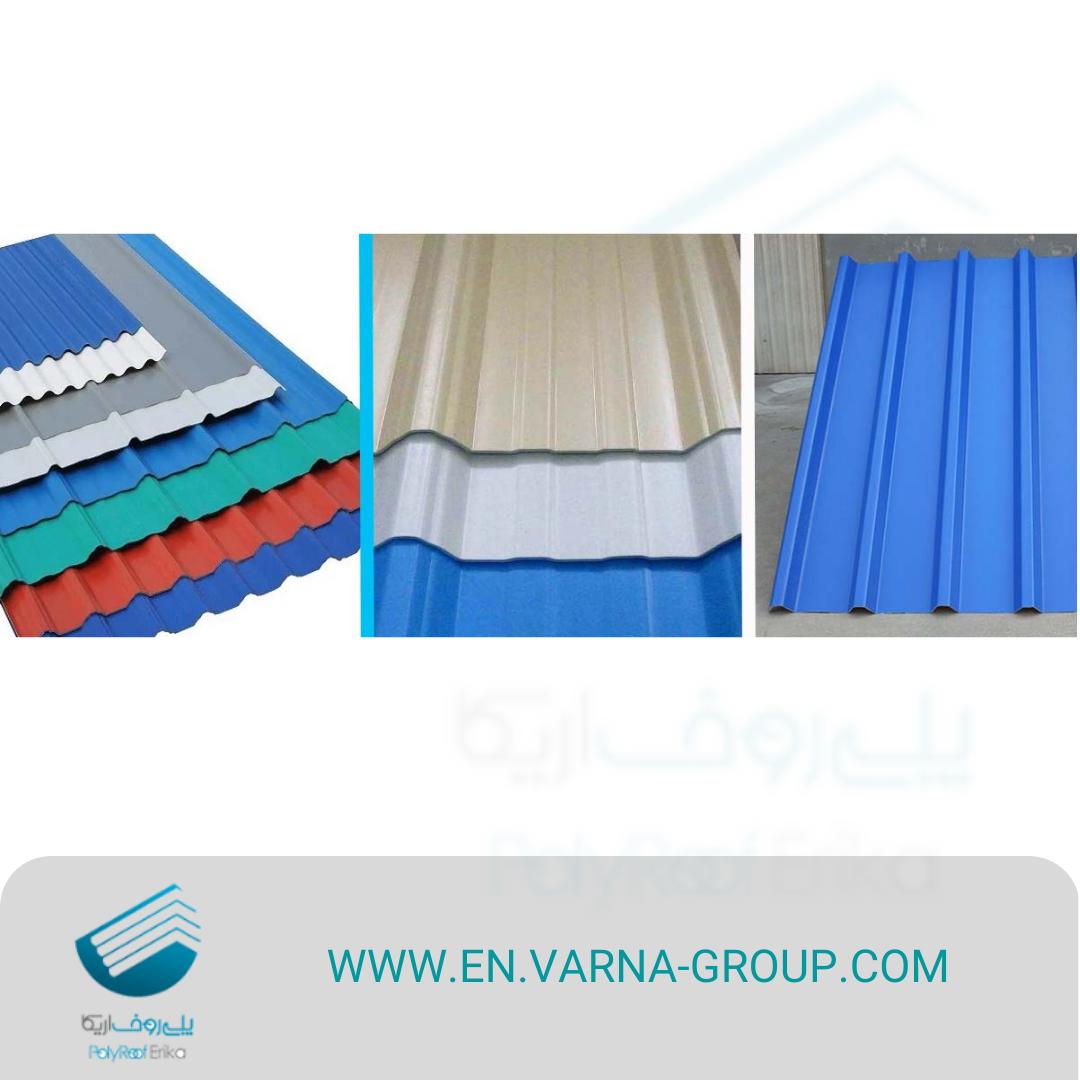
We manufacture high quality construction building materials at Sepid-Fam Varna Company and ship all over the world. Here are the benefits of our uPVC roofing tiles:
UPVC roof tiles come with many benefits, perhaps the biggest disadvantage to uPVC roof tiles is its affordability. But take note that although uPVC sheets might cost a little higher, it is a great investment in your building, since it is a low-maintenance roof material and does not need much repair for many years. So it is worth the added expenses. (They have lower infrastructure costs compared to clay tile and many other roofing systems).
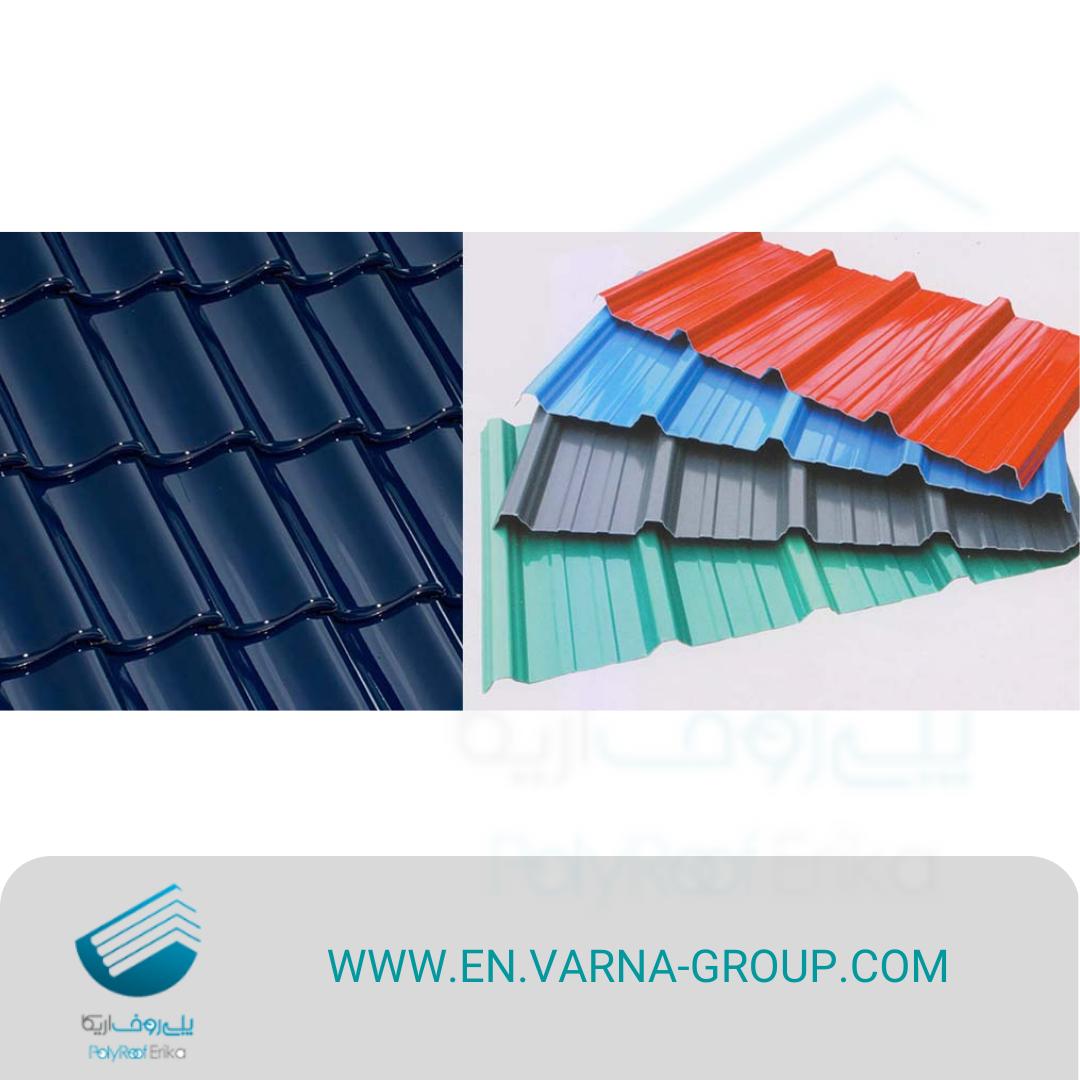
Glazed clay roof tiles vs uPVC roof tiles
Although clay tiles – and their different types (glazed and unglazed) – have many advantages, but based on comparison between uPVC and clay tiles, they have some disadvantages too, which allow us to replace them with uPVC roof sheets. Please consider to contact our consultant teams at Sepid-fam Varna Company before choosing the best type of uPVC roof coverings. (Contact numbers are written at the end of the article).
UPVC tile roof sheet is very long-lasting, and require less maintenance than glazed clay roof tiles. They are a great choice for various situations. UPVC roof sheets can last for decades. All of these have made uPVC tiles an excellent choice for commercial and residential roofs.
Since both of these construction materials are installed individually; any broken or damaged tile can be fixed or replaced.
Unlike glazed clay roof tiles, uPVC sheets are very light weight and easy to install. Clay roof tiles are relatively heavy. Not all building structures can withstand the weight. Therefore, before choosing to buy clay tiles; check that your structure can bear the weight of clay roof tiles.
UPVC or Unplasticized Polyvinyl Chloride roof tiles are incredibly strong. UPVC roof panels are not fragile and will not break or get damaged – easily and during transportation or installation process. But clay roof tiles can be brittle and even crack under the pressure of being walked on. The pressure caused by your body weight can cause even the high material clay tiles to bend and crack.
Being heavy and not easy to install is the main reason clay roof tiles are more expensive. In fact clay tile roofing is more expensive than asphalt, wood, and metal roofing.
On the other hand uPVc roof tiles are less expensive – compared to glossy clay roof tiles. they are lighter in weight and have lower infrastructure costs.
Although glazed clay roof tiles have a lower moisture absorption level than unglazed roof tiles; but still water absorption of clay roof tiles are high -compared to uPVC roof sheets. so it increases the chance of fungal growth and leads to faster deterioration. On the other hand water absorption of uPVC roof tiles are very low, since they are a good sealant and are overlapped completely at the time of installation to prevent leakage from roof.
To seal the roof and make sure tiles are waterproofed; you need specialized installation by a professional roofing contractor. The tiles must be carefully shaped and cut and have correct angles.
Our high quality building materials can be used in curved roofing, too. The sheets are resistant to environmental and chemical agents. They have quick and easy installation – unlike clay roofing tiles.
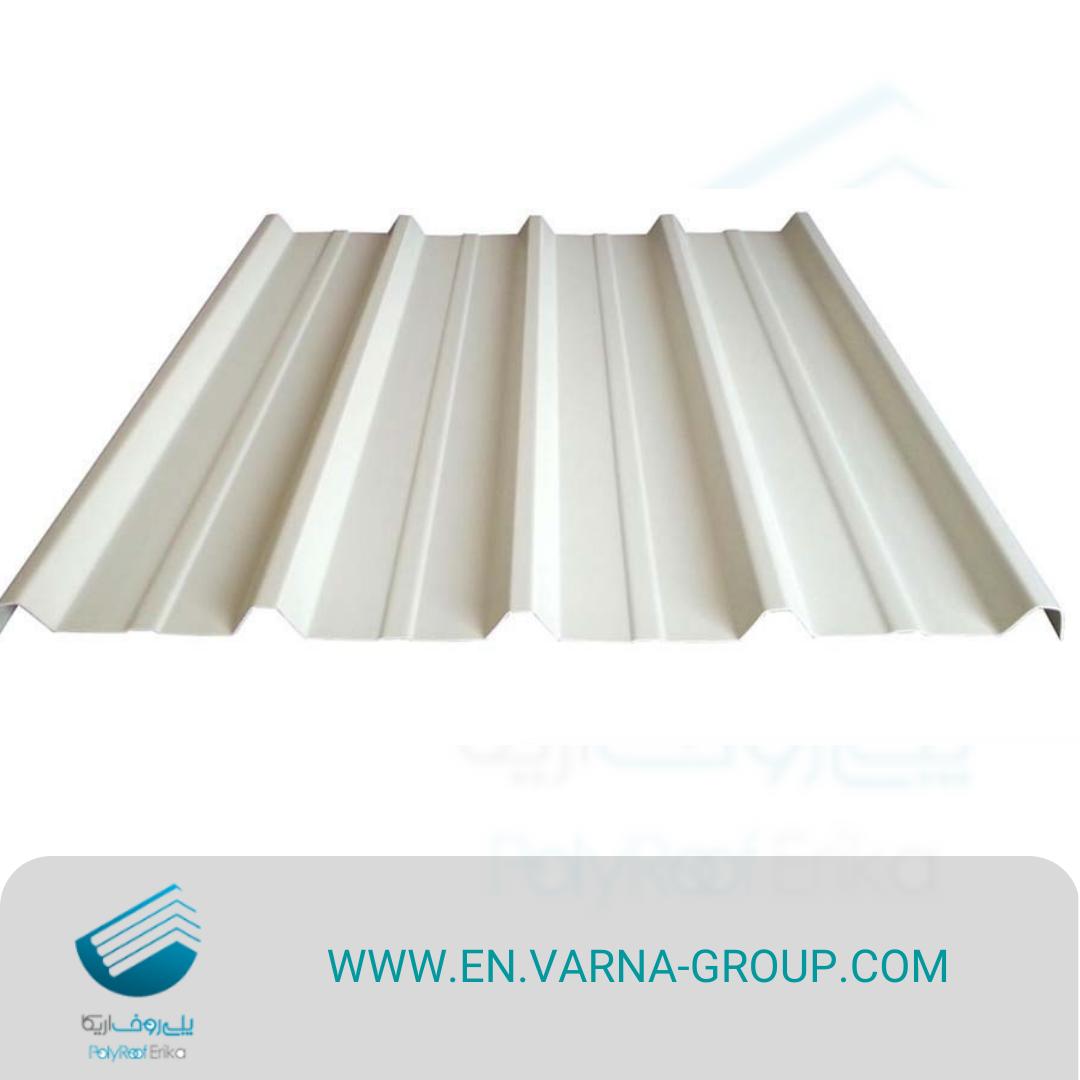
Fire retardant uPVC trapezoidal sheets consist of 2 layers: bottom layer is made of UPVC and top layer is from polymer alloy which shows great resistance to sunlight.
UPVC shingles are designed in an overlapping shape; so that each successive tile overlaps the next when installed from bottom edge to the top. Therefore the gaps are sealed completely. Roof water and heat insulation is done greatly by uPVC roofing sheet material.
Due to its 4 sandwich layers, uPVC eco-panel roof is a great heat insulator. Although they are made of 4 layers, but are lightweight and durable.
4 layers consist of:
First layer: an anti-UV layer
Second layer: UPVC material
Third layer: elastomeric insulation foam
Fourth layer: polymeric laminated aluminum foil
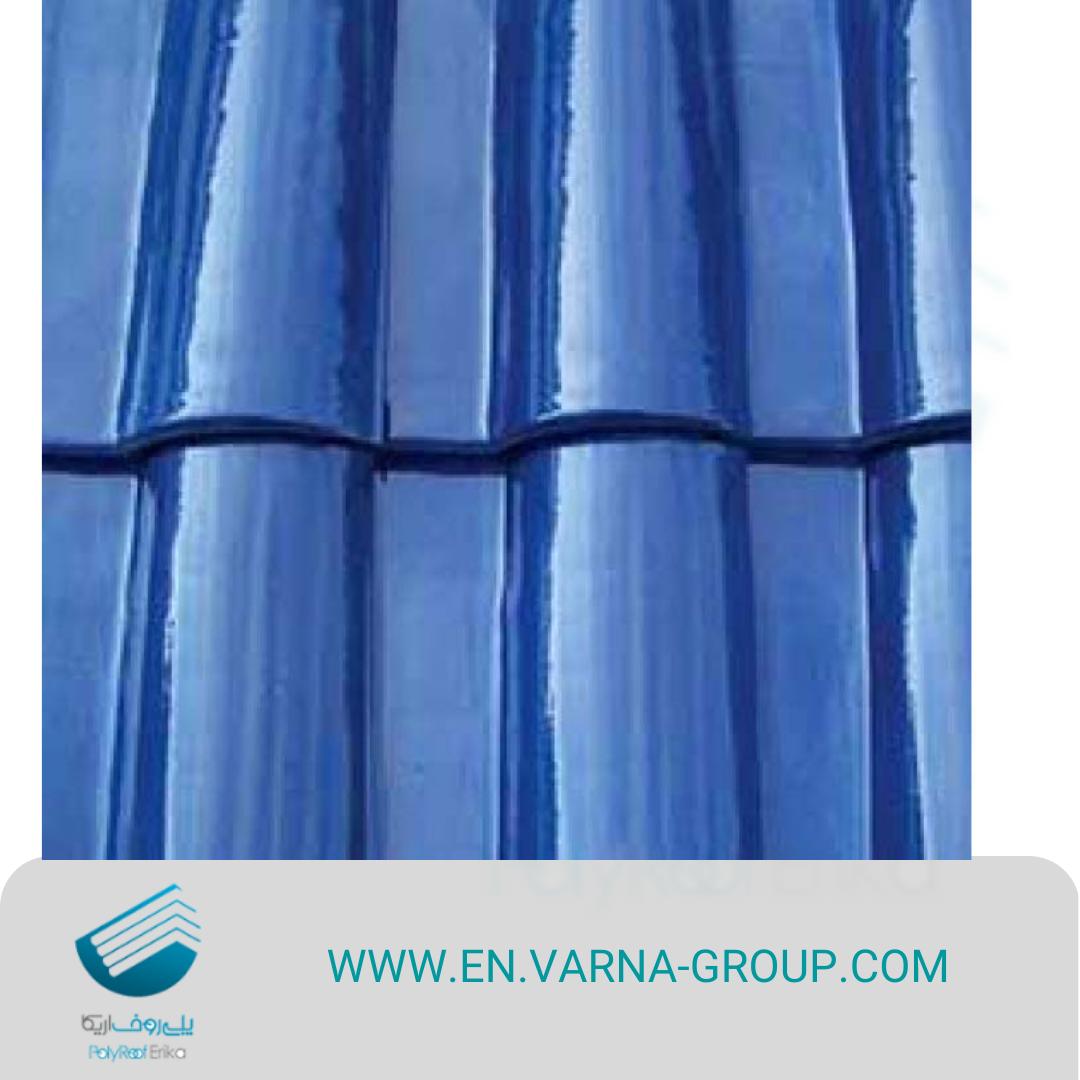
Glazed ceramic tiles
Although both glazed ceramic and glazed clay tiles have protective coating; the water absorption of clay tiles is higher than ceramic. So they are more prone to algae and fungus.
It is considered as a cheaper alternative to cla -terracotta tiles (on a budget).
They look like clay tiles, slate and asphalt shingles but not pricey. They are almost resistant to winds, water and fire.
Glazed terracotta clay tiles are durable but slates look more aesthetic and natural.
Glazed clay roof tiles price is more expensive than uPVC roof tiles. UPVC panels are waterproof, sound proof, not flammable and light. They come with different colors and are aesthetically pleasing.
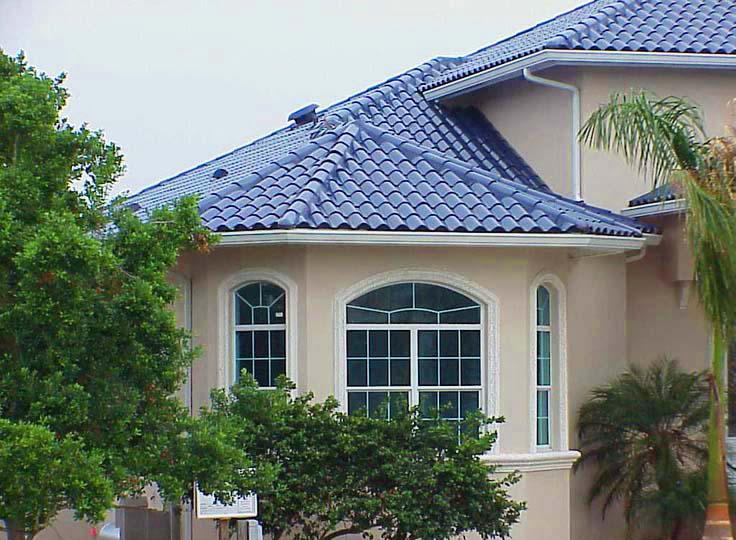
FAQs
Glazed tiles vs unglazed tiles: more durability, water absorption and aesthetic value are some of the advantages of glazed clay roof tiles.
What are the most durable roof materials?
Concrete tiles absorb more water; so clay tiles are less prone to mildew growth and stains. Clay roof tiles weigh much less than concrete; so the building structures with concrete tiles must be stronger to bear the weight. Clay roof tiles crack and break – due to Bad weather conditions – much more than concrete tiles.
How much is a clay roof tile or a glazed tile? Online glazed clay roof tiles price in UAE markets depends on the type, size and quality of clay or terracotta tiles. But generally speaking, clay roof tile costs between $ 0.30 to $ 10 per piece, in 2022.
With the cost of labor for installation, it would be more costly.
Thickness of a clay tile can be between 10 to 15 mm.
Lifespan of glazed clay tile roof is up to 100 years.
The thickness of glazing layer is about 0.1 to 0.2 mm.
One of the clay roof tile properties – A downside to clay tile roof – is that it can be slippery on rainy days or from morning dew.
How about clay tiles dimensions? Clay roof tiles sizes are different. Their exposed length and width are normally around 368 mm X 250 mm; but they also have other dimensions such as:
470 X 300 mm, 463 X 297 mm, 371 X 261 mm, 474 X 285 mm, 320-370 mm.
Sepid-fam Varna is a professional manufacturing and Distribution Company in construction building materials: Producer of class A uPVC roof materials, wall cladding and sandwich panels – under the brand name “Polyroof Erica” – has started its activity since 2014. With cooperation of professional technicians and well-trained marketing experts; we manufacture high quality fireproof materials in building construction for UAE – in particular – and ship our products to all over the world.
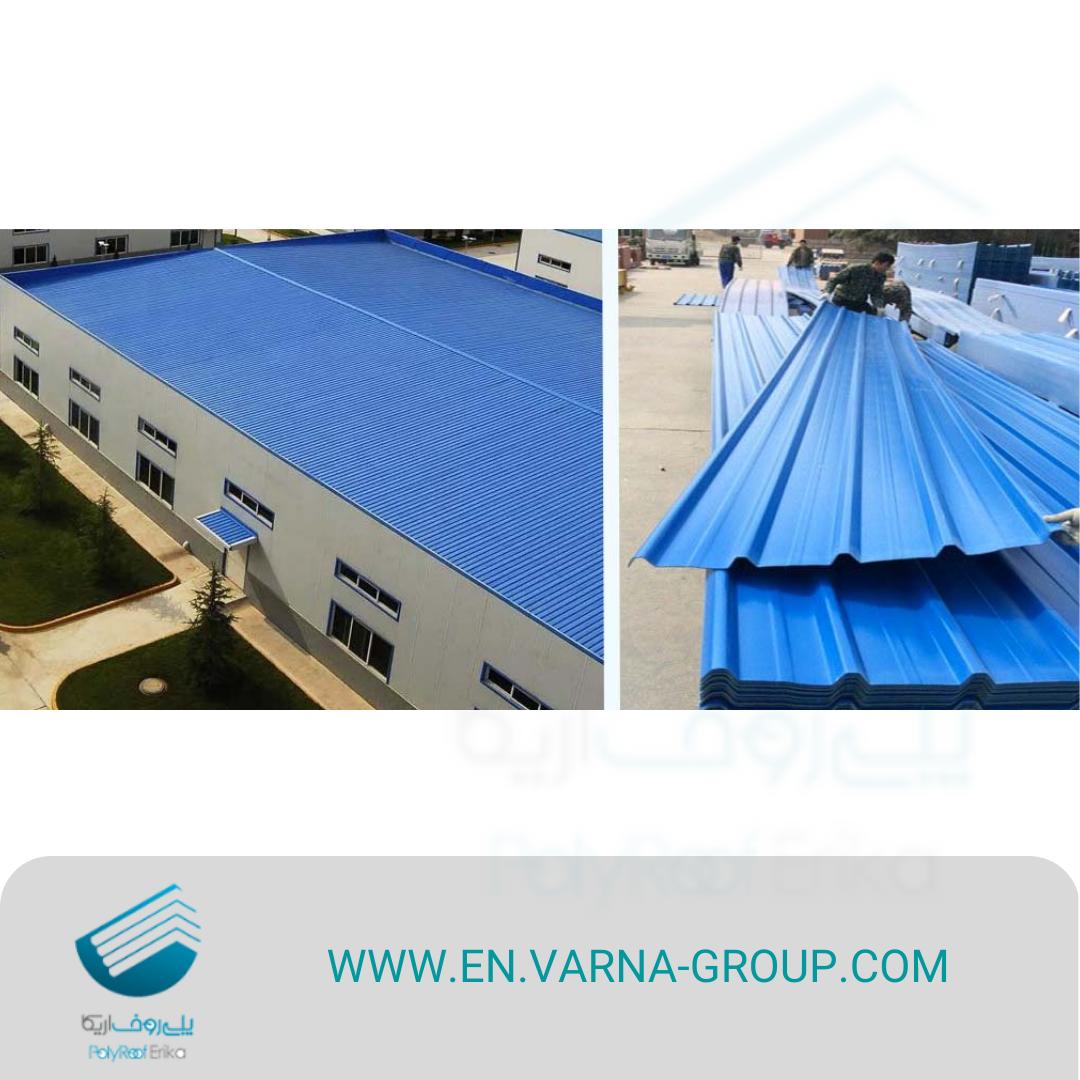
What we Offer at Sepid-fam Varna
Tired of heavy, brittle even glazed clay roof tiles? We have a better option for you. Our uPVC roofing sheets are widely used in various constructions such as: Canopies & Awnings, Industrial sheds, roofing for poultry farms; Warehouses roofs, commercial and residential roofs, etc.
We manufacture non-combustible uPVC roofing sheets and distribute high quality material for UAE in roofing and wall cladding.
For more information, please contact us at Sepid-fam Varna Company.
Email: info@varna-group.com
Contact No: +98 912 962 9521